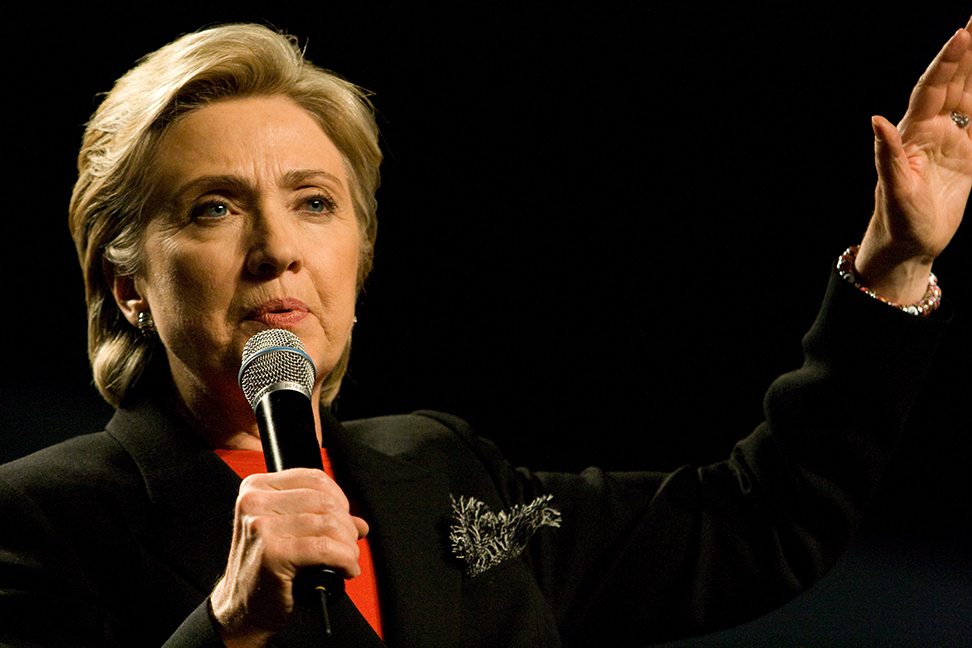Earlier this week, FBI Director James Comey announced the conclusion of the bureau’s lengthy investigation into Hillary Clinton’s use of a private email server (now known to be multiple servers) during her service as Secretary of State. The FBI concluded that while Clinton and her staff did not take actions that would lead to a criminal prosecution, she and her colleagues “were extremely careless in their handling of very sensitive, highly classified information.”
While I’m one of many people who have a hard time understanding how the Justice Department will not file charges against Clinton, it would be fruitless for someone like me who is not a lawyer to attempt to make a legal argument that she should be charged.
What I do understand, and what we should all understand, is that according to the FBI, Clinton willingly and knowingly misused a private email server to communicate classified information. Most importantly, she repeatedly and publicly lied about doing so.
To review: In a press conference on March 10, Clinton claimed “there is no classified material” on her private email servers. The FBI report stated: “FBI investigators have also read all of the approximately 30,000 e-mails provided by Secretary Clinton to the State Department in December 2014. … From the group of 30,000 e-mails returned to the State Department, 110 e-mails in 52 e-mail chains have been determined by the owning agency to contain classified information at the time they were sent or received. Eight of those chains contained information that was Top Secret at the time they were sent; 36 chains contained Secret information at the time; and eight contained Confidential information, which is the lowest level of classification.”
The FBI also found several thousand emails not provided by Clinton’s attorneys: “… agencies have concluded that three of those were classified at the time they were sent or received, one at the Secret level and two at the Confidential level,” per Comey’s statement.
Not long after the March 10 press conference, Clinton’s campaign released a new statement: “No information in Clinton’s emails was marked classified at the time she sent or received them.”
Here’s the FBI’s take: “There is evidence to support a conclusion that any reasonable person in Secretary Clinton’s position, or in the position of those government employees with whom she was corresponding about these matters, should have known that an unclassified system was no place for that conversation. In addition to this highly sensitive information, we also found information that was properly classified as Secret by the U.S. Intelligence Community at the time it was discussed on e-mail. …
“Only a very small number of the e-mails containing classified information bore markings indicating the presence of classified information. But even if information is not marked ‘classified’ in an e-mail, participants who know or should know that the subject matter is classified are still obligated to protect it.”
Additionally, from a report to Congress from the Inspector Generals of the State Department and the Intelligence Community: “These emails were not retroactively classified by the State Department” (as Clinton had claimed they were). “Rather these emails contained classified information when they were generated and, according to IC classification officials, that information remains classified today. This classified information should never have been transmitted via an unclassified personal system.”
This past August, Clinton’s lawyers attempted to make the timeless 5-year-old legal argument: He did it, so I should be able to do it too (nobody directly said this), suggesting that Colin Powell — Secretary of State under George W. Bush — also used private email during his tenure, and communicated classified information through it.
This however, is not true. As The Washington Post reported: “Powell conducted virtually all of his classified communications on paper or over a State Department computer installed on his desk that was reserved for classified information, according to interviews. Clinton never had such a desktop or a classified email account, according to the State Department.”
So here’s my argument, in a nutshell: Clinton lied about her actions. And then changed her lie. Which was still a lie. She attempted to argue that she was just doing what other people in her position did. Which was again, a lie.
There is obviously relief from Democrats who wish to move on from this, and the decision not to press charges assures that she will move forward to win the presidency (if she weren’t facing Donald Trump, maybe this would be a different story). But we shouldn’t move on so easily. If the FBI had taken longer with their report, how many more times would Clinton have lied about her actions? Why, if there was no criminal wrongdoing, did she lie in the first place? And finally, how many lies does it take for us to recognize that Clinton is
simply a dishonest person?
These are questions our next president, and her supporters, will have to answer if she wants to be trusted in office.
Sam Wallace is a public policy graduate student. He can be reached at samhwallace@gmail.com.



